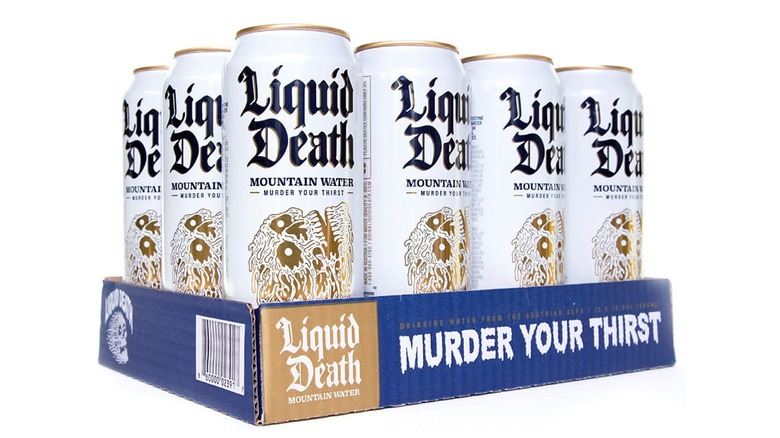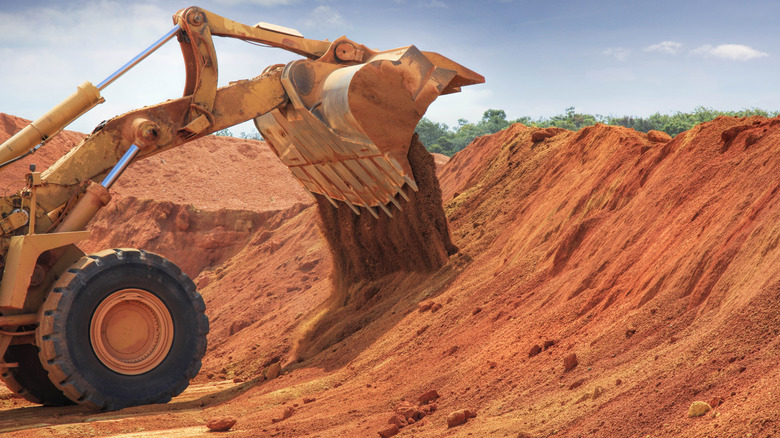Here's Why Canned Water Isn't As Popular As Bottled Water
Canned water isn't new, but it burst into the public limelight in 2019 when Liquid Death released its tallboy 16.9-ounce cans of still or sparkling water, followed by 19.2-ounce king-size cans. Touted for providing an alternative to plastic bottles, the cans gained a following among those tired of the overconsumption of plastic and loving the infinitely recyclable aluminum. More brands such as Open Water and Richard's Rainwater promptly jumped on the trend, with an Amazon search revealing even more companies selling unique canned water varieties.
But even though many people are frustrated with the proliferation and environmental downsides of plastic water bottles, canned water hasn't overtaken them in popularity for a few reasons. A can is great to throw in your bag and take with you, but due to its lack of a lid or cap, it can't be re-closed once it's been opened, making it inconvenient for a hike or bike ride. The ability to put a cap on it simply makes a water bottle more portable.
Additionally, size matters. Water bottles can be bought in various sizes, and Liquid Death may have a 19.2-ounce size can, but many people buy water in sizes that are twice that or larger.
There's also the environment to consider. It can be argued that aluminum cans are more environmentally friendly since they're easier to recycle. But if you don't or can't recycle your cans for whatever reason, and you're buying multiple cans of water to get the same amount as the larger water bottle, you're creating more waste.
Aluminum carries its own carbon footprint
While it seems like switching from plastic to aluminum cans for water is a no-brainer on the surface, there are other aspects to consider if we're trying to be more eco-friendly. "The aluminum industry can play on the fact that its product is infinitely recyclable, and they're right," Martin Barrow, Carbon Trust's director of footprinting told Reuters. "But primary aluminum uses huge amounts of electricity and it's also got some chemical releases of greenhouse gas emissions."
Aluminum is made from the rock bauxite, and according to a CMS Wire interview with Ghanaian environmentalist Perk Pomeyie, strip mining is devastating to the environment and ecosystem. "You have to strip off the topsoil and that means stripping away the natural habitat, the natural vegetation, the biodiversity, the wildlife, to get access to the bauxite." With the topsoil removed, the land becomes infertile and unusable.
But the plastic used for bottled water is made from petroleum, which causes its own damage to the environment via oil drilling and fracking, so companies are trying to weigh the pros and cons of both. With major players like Coca-Cola, Pepsi, and Nestle stepping into the canned water industry, we may soon see the popularity of bottled water start to shift.

